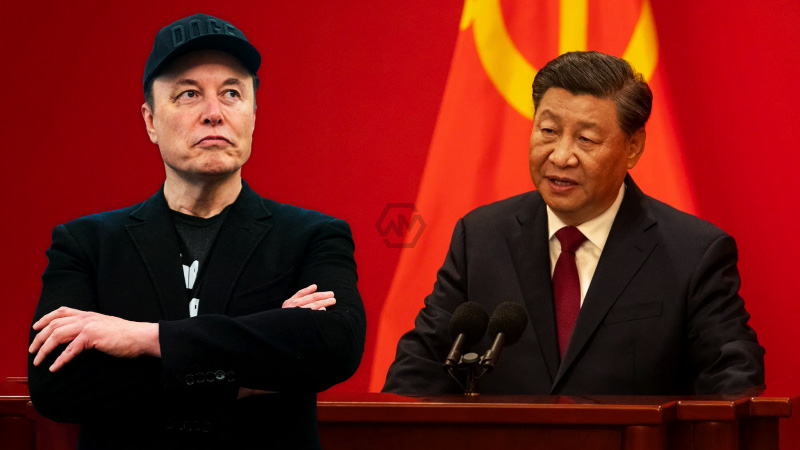- Elon Musk proposes a new political party to disrupt America’s two-party dominance.
- Chinese netizens rally behind Musk amid his feud with Donald Trump.
- Analysts see Beijing’s subtle online support as a strategic geopolitical move.
Elon Musk has once again stirred the U.S. political pot by reviving his idea of launching a new political party, targeting a handful of Senate and House seats to influence key legislation.
Meanwhile, Musk’s clash with Donald Trump has rippled far beyond American borders. In China, where political discussions involving foreign leaders are usually censored, Musk has become a trending figure on platforms like Weibo.
From Capitol Hill to Weibo: Musk, Trump, and China’s Quiet Calculus
Elon Musk’s idea for a political third force is more than symbolic rhetoric — it’s a blueprint for legislative influence. By concentrating on just a few pivotal Congressional districts, he aims to hold the swing votes on major bills, effectively forcing mainstream parties to negotiate with his faction. This lean but impactful model borrows tactics from smaller European parties that act as kingmakers in coalition governments.
Trump, in turn, escalated the feud by questioning Musk’s citizenship status, suggesting his naturalized status could be reviewed. This provocation drew criticism across political lines and business communities. It also signaled how deeply personal and strategic this rivalry has become, especially with both figures holding enormous cultural and economic clout in different spheres of influence.
In China, where Elon Musk already enjoys popularity due to Tesla’s massive Shanghai operations, the latest online response is unusually intense — and uncensored. The enthusiasm appears coordinated or at least tolerated, which analysts interpret as a calculated gesture by Beijing. Highlighting Musk as a visionary tech leader, while mocking Trump’s protectionist tone, allows China to reshape the image of American leadership to its advantage.
By supporting Musk through indirect digital means, Beijing protects its economic interests while undermining figures who champion trade wars and tariffs. This approach aligns with China’s broader strategy of leveraging soft power and strategic narratives to fracture foreign consensus and foster relationships with influential, globally-minded business elites.
Elon Musk’s political ambitions and rising favor on Chinese social media reveal a deeper convergence of tech, power, and international influence. The lines between domestic politics and global strategy are rapidly blurring.
“In politics, nothing happens by accident. If it happens, you can bet it was planned that way.” – Franklin D. Roosevelt



